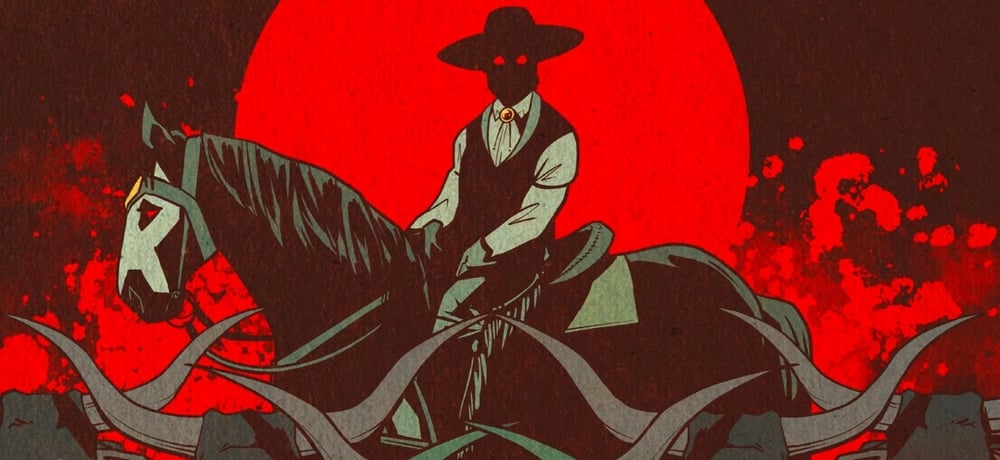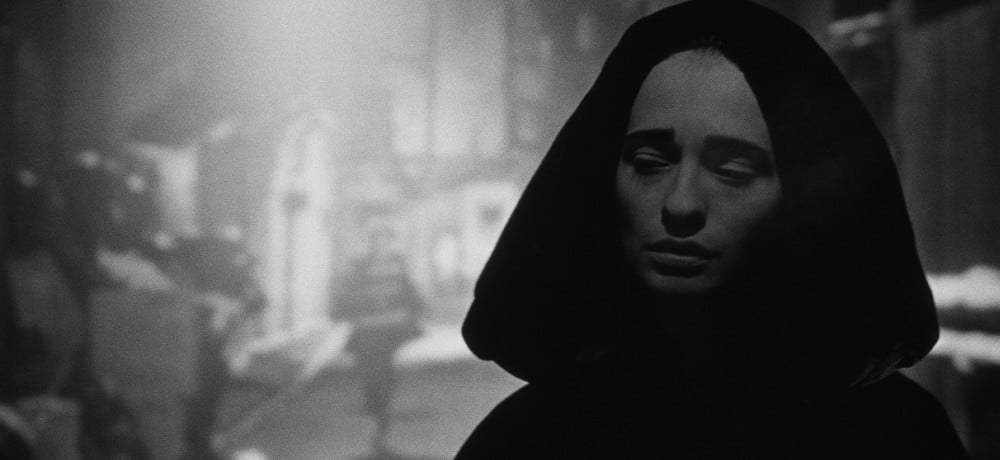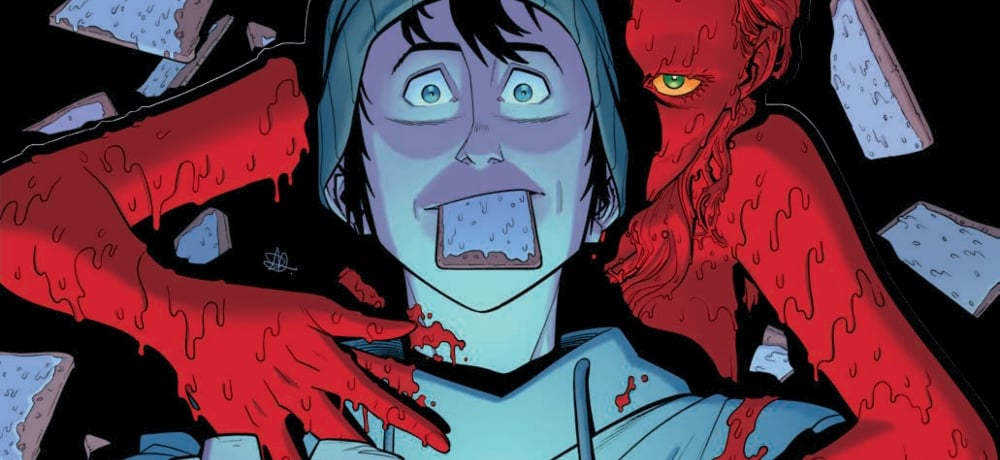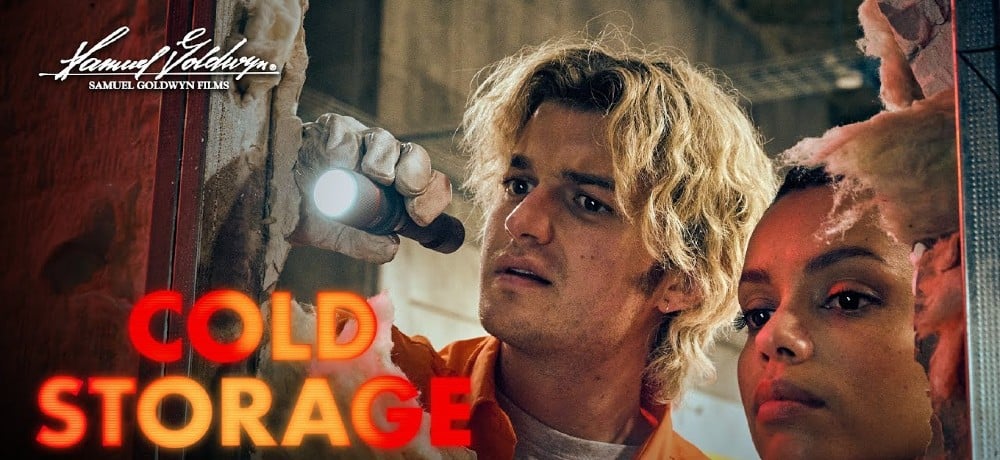





First-time feature filmmaker Dominic Bridges’ dark comedy Two Pigeons recently enjoyed its world premiere at the 2017 SXSW Film Festival. The movie stars Javier Botet as a man so obsessed with his pursuit of revenge that he stealthily moves into the home of his intended victim, a slick real estate agent Hussein (Mim Shaikh), and spends all of his alone time sabotaging the man’s entire life—from his toiletries to his relationships to even his promising career.
Daily Dead recently had the chance to catch up with UK director Bridges about his first time at the helm of a feature film, and he also discussed his approach to the story of Two Pigeons, his experiences working with Botet, and more.
Great to speak with you, Dom. I’d love to start off with where the idea for the story came from, because Orlan is such an interesting character in that there's such a sadness to his story that helps ground him when he's doing these really horrible, horrible things to Hussein.
Dominic Bridges:. It was weird, because I had never directed a movie before, and so I would talk about things with both Mim and Javier, who were always pushing me, saying things like,"You know, we need to talk about this," or, "Why does he do this?" They just wanted to hear why the film existed in the first place, and then we spent a good couple of hours [together], and I told them the whole story about Orlan and his tragedy, and then they were like, "That's what we mean by talking about it."
I didn't realize that I had to share that, but once I started talking about it, they were both really upset [for the character] coming out of it. It was a real revelatory moment for me as a director, coming from a commercial background. No one cares what you are thinking prior to shooting a commercial, they just want you to shut up and do your job. That moment was a real eye-opener, and it was actually one of the most beautiful moments of this whole experience.
And with Javier, in particular, because of other films that he's done, it meant more to him than anyone else, because he was building a real character in this film. He had lines. When you think about where he actually comes from, we all know him as this modern-day Boris Karloff, where he’s this monster genius, but inside he's a comedian. He wants to be a real actor, a comedic actor, and needs some of those things to feed off of. To me, the most important part of the whole thing, really, was that Javier was getting what he needed to do for what’s probably been one of his most complex roles so far.
Is it hard when you're doing this really dark comedy to make sure you get that tone right? Because if you go too far in one direction, then it almost becomes nihilistic in a way, and if you go a little too further in the other direction, then it can become almost farcical.
Dominic Bridges: Yeah, I don't know. I talk honestly about these things, but I don't really come from any kind of academic background. I just run purely on instincts, I’m purely a visual person. I don't read particularly well, and I was always the quiet kid at school. So it’s a tough one, because it's all intuitive for me. It's kind of like I was adamant that we couldn't make the film without Javier. It was written with Javier in mind, and that was the real catalyst for the feeling of it, because of his physicality and what I knew he’d bring to it.
It would have been really hard for us to make that film with anyone else—to find someone with that unique physicality is impossible. A lot of it stems from him trying to make an environment as small as possible for one of the biggest people on the planet to inhabit. He wanted to live in there, too. We got him a room at a hotel down the road, and he was like, "No. I just want to live in the flat on the set." He was just embedding himself within this world. I know this film meant a lot to a lot of people, but I think it meant the most to him.
You mentioned this is your first time being a director of a feature film, and that Javier had come into Two Pigeons with a lot of experience. How much did working with Javier help shape you in terms of what you were trying to do with the film, and also, were there things that he added to the script in terms of the physicality? Were there things that surprised you because you didn't even realize he could do them?
Dominic Bridges: Oh, one hundred percent, absolutely. At the same time, though, I was very cautious of what I was asking him to do, because I wanted to make sure it served him as a performer, and it served the character. What’s crazy is that he used to be a kids’ entertainer. He used to do kids’ parties, where he would dress up as a clown, if you can imagine that [laughs]. He must have been the most terrifying f---ing clown that's ever dressed up at a kids’ party.
Things became something of a joke between us when we were making this. It was like, "Javier, do you mind if you just go for a piss?" And he's like, "What? Do you want to see my dick?" And I would say, "Yeah, if that's okay with you." Then, it went on and on and on, until the point where I could hear him whispering into the microphone saying, "The director just wants to look at my dick all the time," and he was having some fun with it at my expense, which I thought was great [laughs].
At the same time, I was very conscious of the fact that the guy has a condition, and asking someone who may be uneasy with being front and center to just wander around without the comfort of prosthetic is a big deal.
But every day, he just lifted everyone, and he is truly a gifted, born entertainer. He has taken what could be perceived as a negative and just turned it into, "This is what I do, and I thrive on that." I learned an awful lot from him and got an awful lot of confidence from him throughout the making of this film.
---------
In case you missed it, catch up on our previous coverage of the SXSW Film Festival.